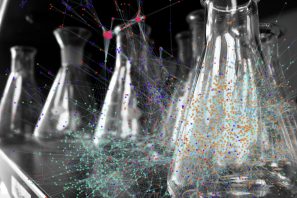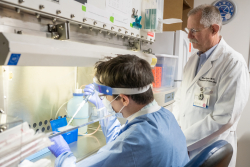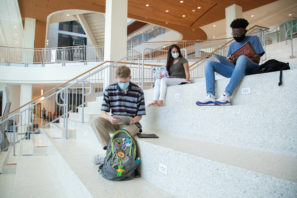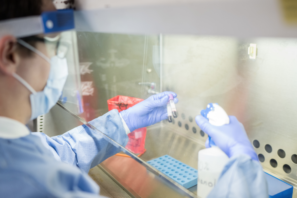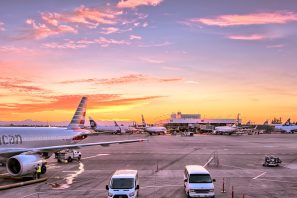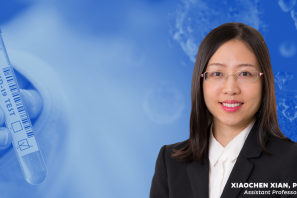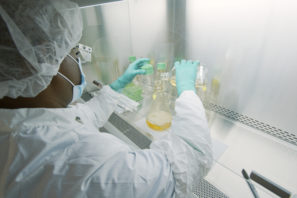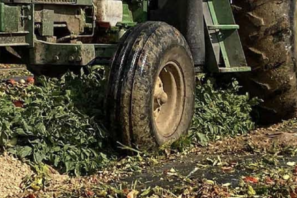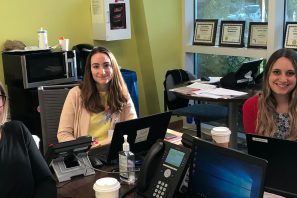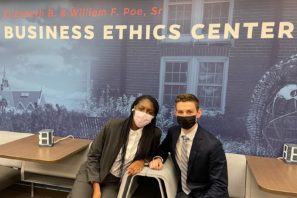In a project with the UF Informatics Institute SEED Fund, the Departments of UF Sociology and UF Linguistics will study different topics on COVID-19.
Efforts are in underway to speed up the process on COVID-19 research for UF Health researchers to evaluate a drug treatment for coronavirus.
The University of Florida will attempt to vaccinate more than 1,000 students as part of a landmark national study to determine whether young people who have received a COVID-19 vaccine can still spread the coronavirus.
University of Florida Health has enrolled its first patient in a clinical trial for the Regeneron Pharmaceuticals’ monoclonal antibody cocktail to treat COVID-19.
A third of American travelers are concerned about coronavirus on domestic flights, according to a new study from the University of Florida.
Xiaochen Xian, Ph.D., an assistant professor for UF ISE, is working on research to develop a way to administer mass testing for COVID-19.
As part of the White House’s Operation Warp Speed initiative, the U.S. Department of Health and Human Services selected UF Health and...
Recent work contributed to by UF mathematician Burton Singer seeks to estimate how COVID-19 vaccination campaigns will affect the future trajectory of the pandemic in the US.
The race to defeat the novel coronavirus took a major leap forward last week when the Food and Drug Administration and the Centers for Disease Control and Prevention authorized the use of the Pfizer COVID-19 vaccine in children 12 to 15 years old.
When COVID-19 brought the tourism industry to a crashing halt this spring, farmers around the state quickly pivoted to sell the bounty of fruit and vegetables that were at peak harvest.
Thirty UF faculty members and students answered the call when the state of Florida needed to drastically boost the number of epidemiologists working with health departments around the state.
Two students from the University of Florida Warrington College of Business finished among the top teams at the Templeton Business Ethics Case Competition at Stetson University.

